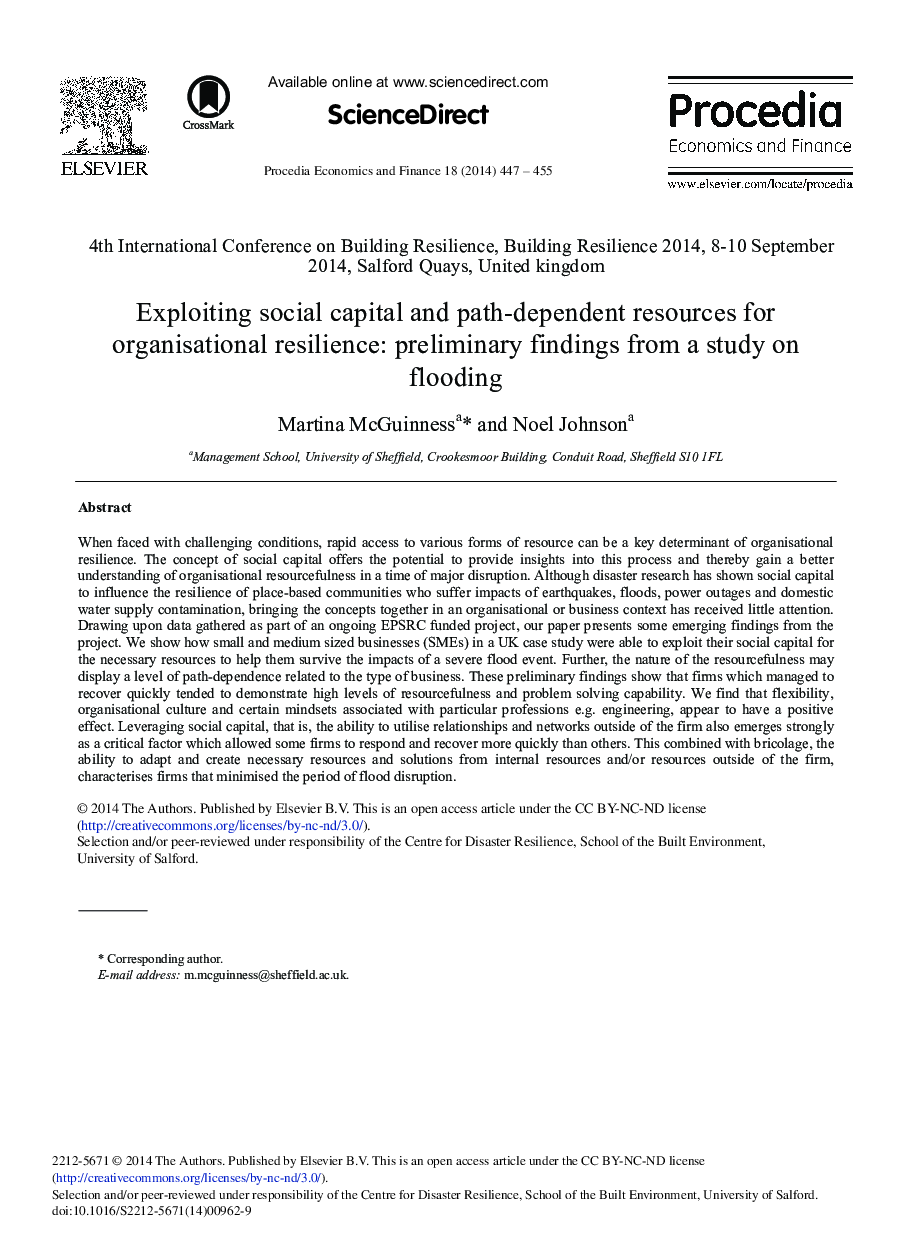| Article ID | Journal | Published Year | Pages | File Type |
|---|---|---|---|---|
| 981526 | Procedia Economics and Finance | 2014 | 9 Pages |
When faced with challenging conditions, rapid access to various forms of resource can be a key determinant of organisational resilience. The concept of social capital offers the potential to provide insights into this process and thereby gain a better understanding of organisational resourcefulness in a time of major disruption. Although disaster research has shown social capital to influence the resilience of place-based communities who suffer impacts of earthquakes, floods, power outages and domestic water supply contamination, bringing the concepts together in an organisational or business context has received little attention. Drawing upon data gathered as part of an ongoing EPSRC funded project, our paper presents some emerging findings from the project. We show how small and medium sized businesses (SMEs) in a UK case study were able to exploit their social capital for the necessary resources to help them survive the impacts of a severe flood event. Further, the nature of the resourcefulness may display a level of path-dependence related to the type of business. These preliminary findings show that firms which managed to recover quickly tended to demonstrate high levels of resourcefulness and problem solving capability. We find that flexibility, organisational culture and certain mindsets associated with particular professions e.g. engineering, appear to have a positive effect. Leveraging social capital, that is, the ability to utilise relationships and networks outside of the firm also emerges strongly as a critical factor which allowed some firms to respond and recover more quickly than others. This combined with bricolage, the ability to adapt and create necessary resources and solutions from internal resources and/or resources outside of the firm, characterises firms that minimised the period of flood disruption.
